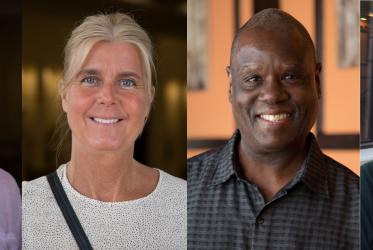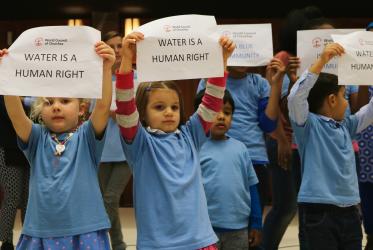Displaying 81 - 100 of 165
18 November 2017
Re-engineering life forms: Church forum raises concerns
09 November 2017
Learning and networking flourishes at WCC Ecumenical Officers Meeting
28 September 2017
Peace consultations of hope
07 July 2017
G7 must address famine
22 May 2017
“Overcoming economic injustice” vision of WCC’s Athena Peralta
23 February 2017
New videos help congregations hasten HIV response
20 October 2016
World Social Forum sows seed of hope in global north
17 August 2016












